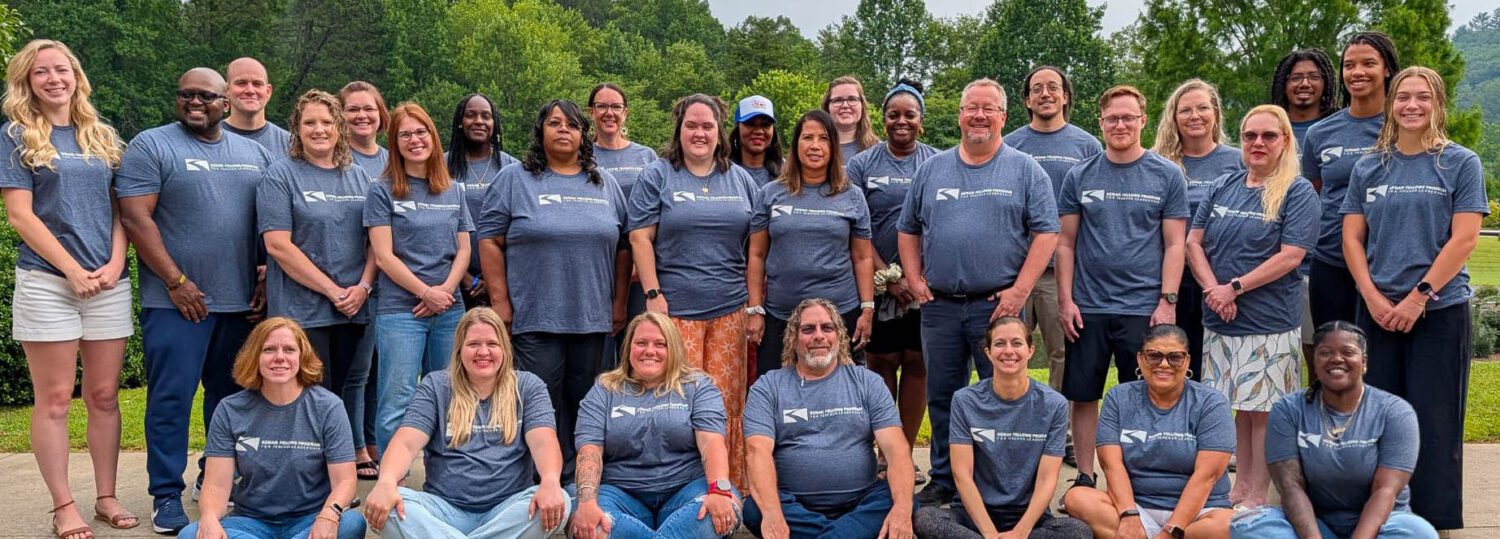CULLOWHEE, N.C. — Surrounded by the picturesque North Carolina mountains, 29 teachers from across the state gathered in late June for a week that promised and delivered professional growth and a sense of belonging.
The 2025–26 cohort of the Kenan Fellows Program for Teacher Leadership gathered June 23–27 at the N.C. Center for the Advancement of Teaching (NCCAT) for the program’s annual Summer Institute. Designed to build leadership skills and inspire classroom innovation, the immersive week marked the beginning of their journey as teacher leaders.
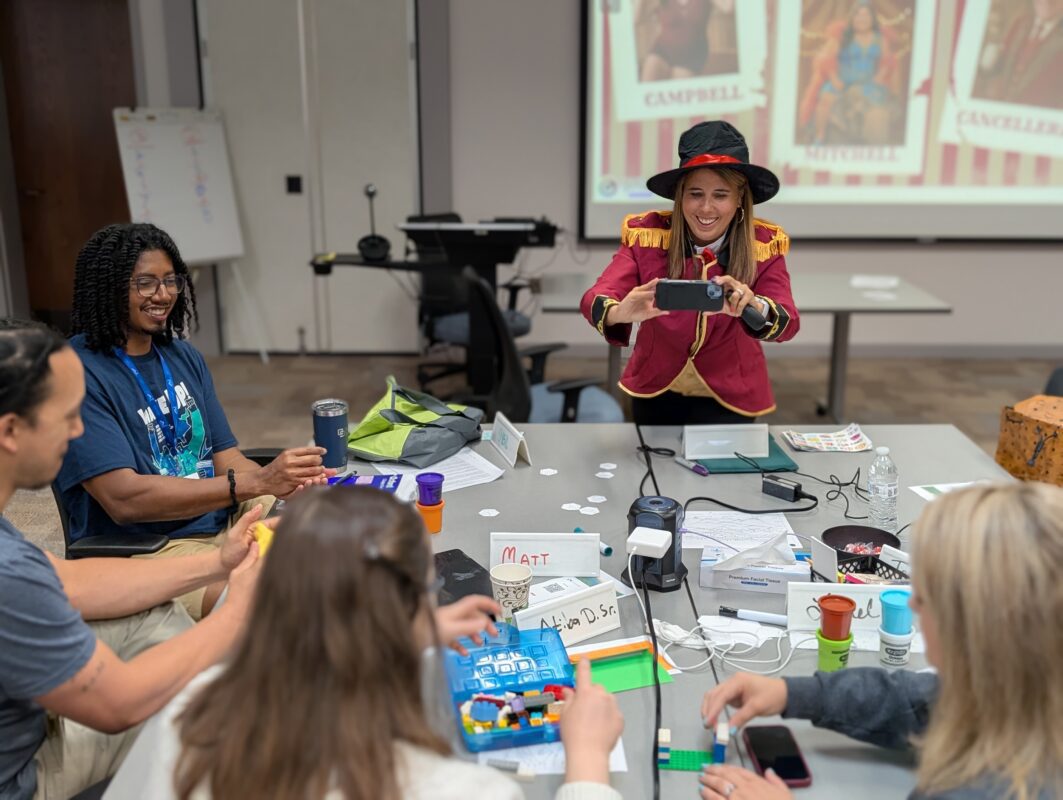
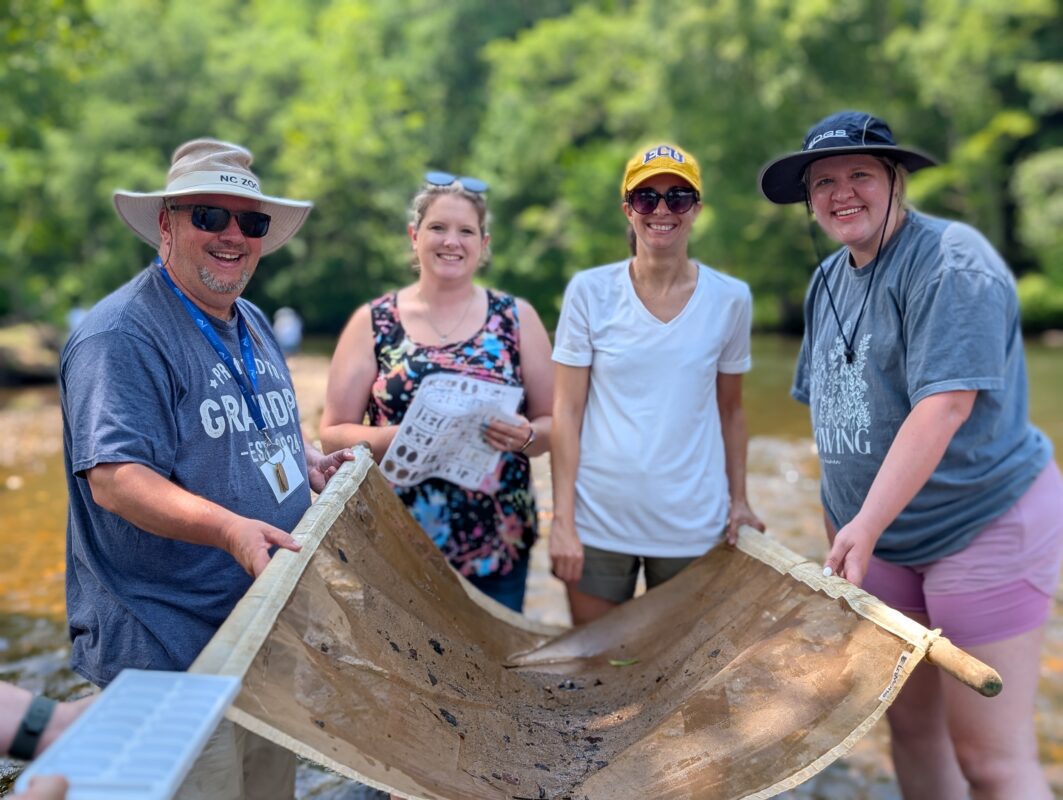
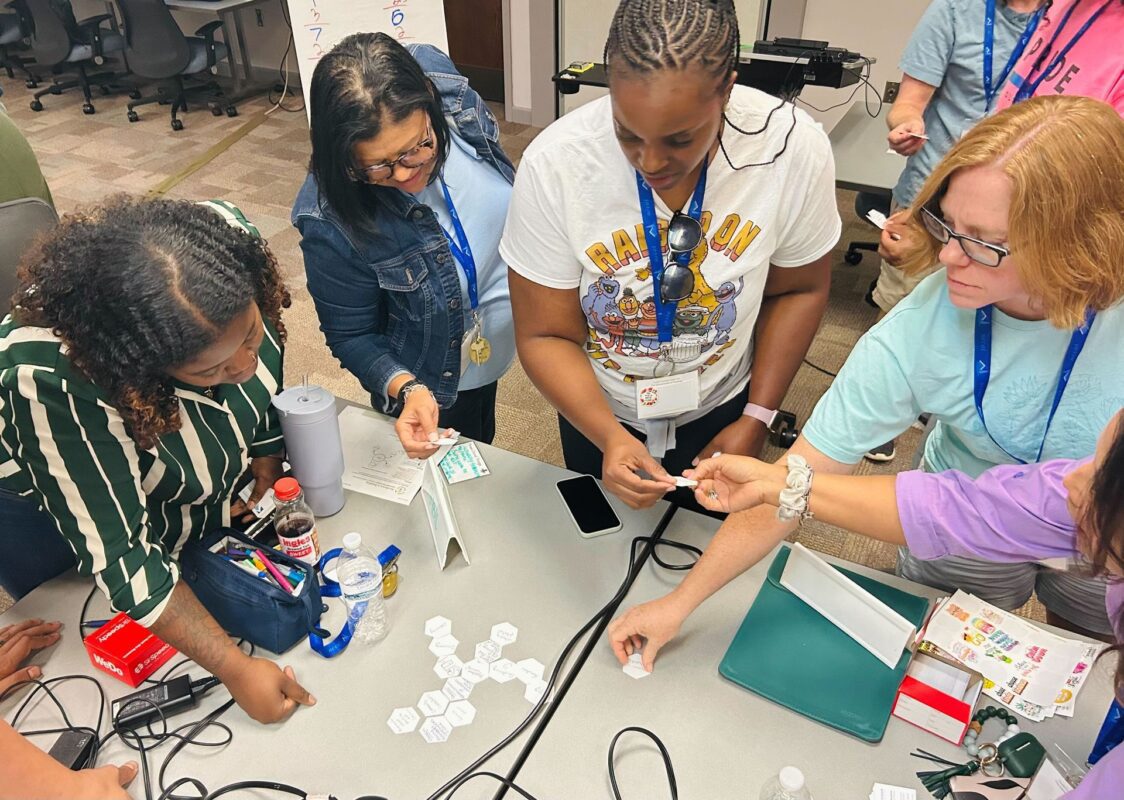
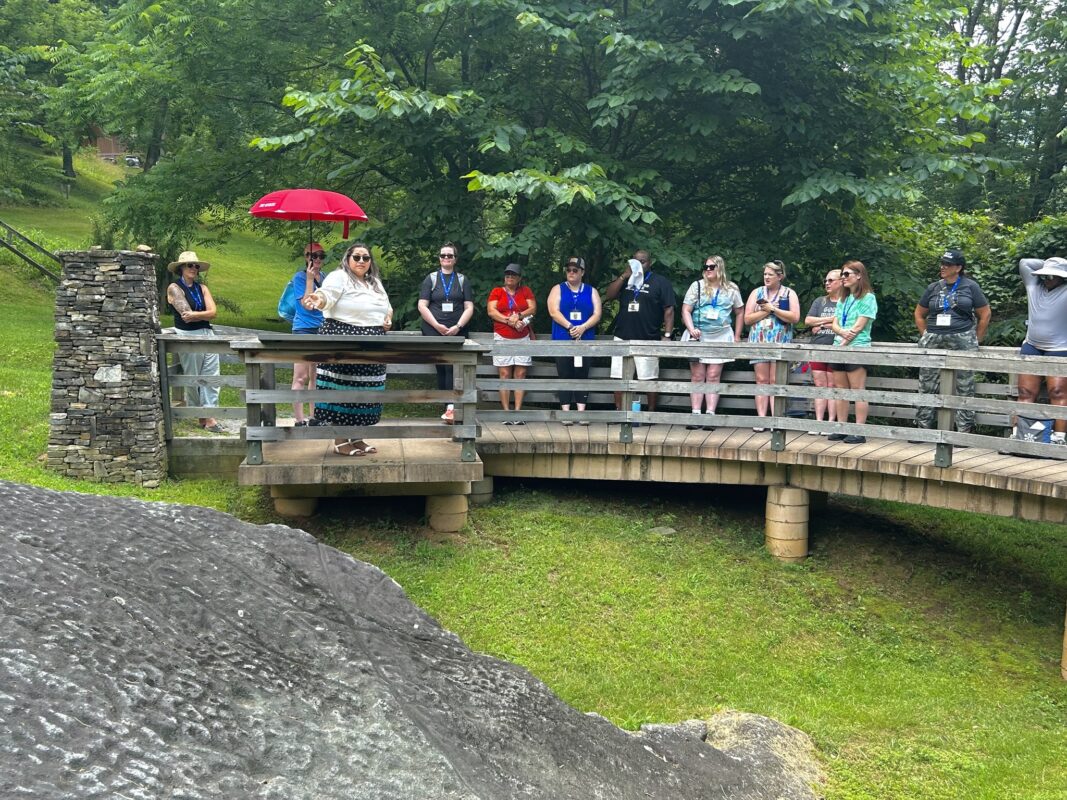
This wasn’t typical “sit and get” professional development.
The theme, Knowing and Growing Yourself as an Educator, set the tone for sessions that were hands-on and immediately applicable to today’s classrooms. Led by Kenan Fellows alumni, workshops explored how to integrate artificial intelligence into teaching, writing successful grants, and fostering student-centered learning environments. Fellows also learned how to use storytelling to build resilience, embrace outdoor learning, and engage students in problem-solving.
Immersive Field Experiences
The learning extended far beyond four walls.
During a field experience at Judaculla Rock, Fellows explored Cherokee history and culture. Along the banks of the Tuckasegee River, they got their feet wet for “kick net” water quality testing activities, an exercise in environmental science and place-based education.
But the heart of the week, many Fellows said, was the community they built.
Building a Supportive Community
“This has been one of the most meaningful PD experiences I’ve had,” said Alexis Moore, a Durham Public Schools teacher. “It was practical, reflective, and grounded in the real world of teaching.”
Moore said she gained new tools to help students take ownership of their learning through inquiry and collaboration.
Jennifer Keeter, an educator from Rutherford County Schools, emphasized the power of connection. She expressed, “I’ve made relationships I know will last long after this year.”
That sense of camaraderie echoed across the cohort.
“To be in a room with so many passionate educators was humbling and energizing,” said Atiba D. Bethea, an educator with Charlotte-Mecklenburg Schools.
He said he left the Summer Institute with a deeper appreciation for using AI as a teaching tool, crafting a personal brand as an educator, and designing classrooms that prioritize engagement and community relevance.
Continued Growth and Impact
The Summer Institute was the first of three professional learning retreats for the cohort. By year’s end, each Fellow will complete 80 hours of professional development designed to amplify their impact in their school districts and beyond.
